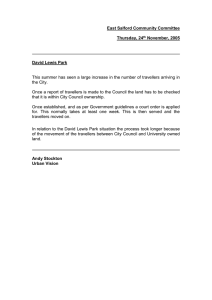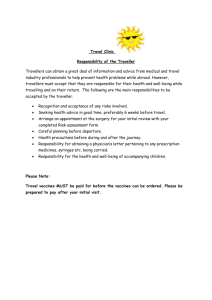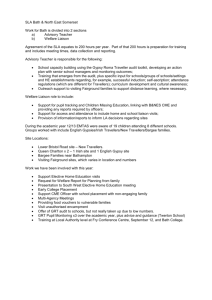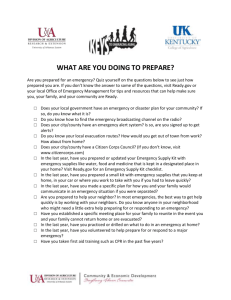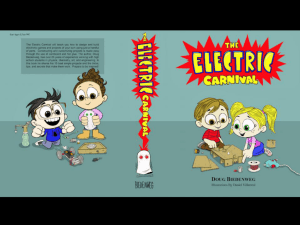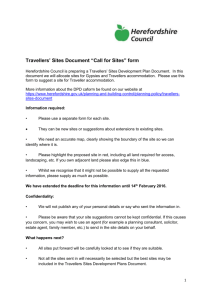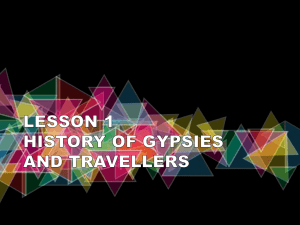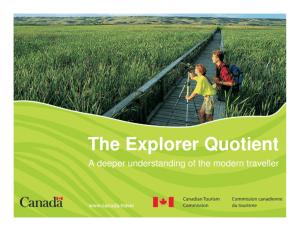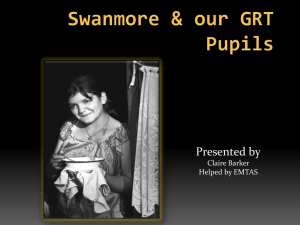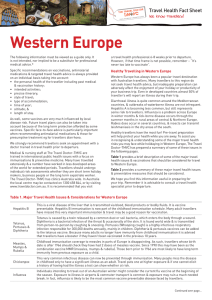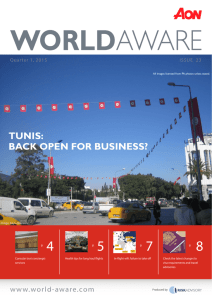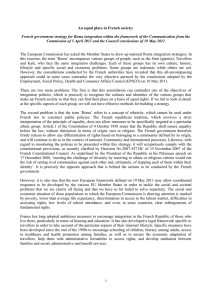Word - Dr Deb
advertisement
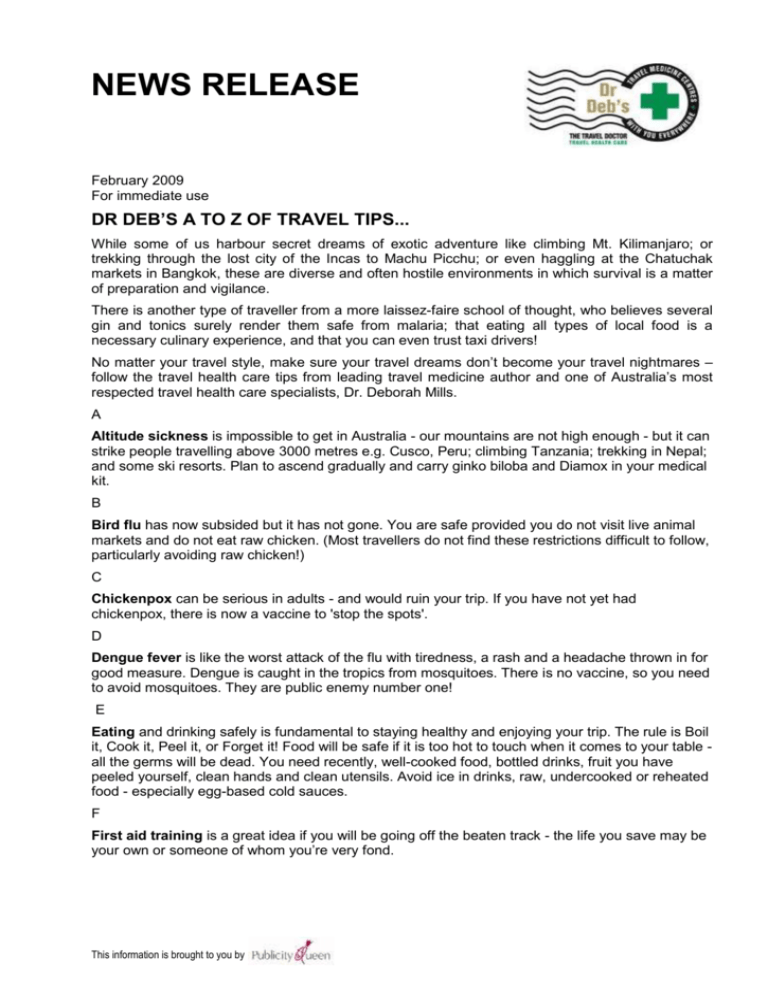
NEWS RELEASE February 2009 For immediate use DR DEB’S A TO Z OF TRAVEL TIPS... While some of us harbour secret dreams of exotic adventure like climbing Mt. Kilimanjaro; or trekking through the lost city of the Incas to Machu Picchu; or even haggling at the Chatuchak markets in Bangkok, these are diverse and often hostile environments in which survival is a matter of preparation and vigilance. There is another type of traveller from a more laissez-faire school of thought, who believes several gin and tonics surely render them safe from malaria; that eating all types of local food is a necessary culinary experience, and that you can even trust taxi drivers! No matter your travel style, make sure your travel dreams don’t become your travel nightmares – follow the travel health care tips from leading travel medicine author and one of Australia’s most respected travel health care specialists, Dr. Deborah Mills. A Altitude sickness is impossible to get in Australia - our mountains are not high enough - but it can strike people travelling above 3000 metres e.g. Cusco, Peru; climbing Tanzania; trekking in Nepal; and some ski resorts. Plan to ascend gradually and carry ginko biloba and Diamox in your medical kit. B Bird flu has now subsided but it has not gone. You are safe provided you do not visit live animal markets and do not eat raw chicken. (Most travellers do not find these restrictions difficult to follow, particularly avoiding raw chicken!) C Chickenpox can be serious in adults - and would ruin your trip. If you have not yet had chickenpox, there is now a vaccine to 'stop the spots'. D Dengue fever is like the worst attack of the flu with tiredness, a rash and a headache thrown in for good measure. Dengue is caught in the tropics from mosquitoes. There is no vaccine, so you need to avoid mosquitoes. They are public enemy number one! E Eating and drinking safely is fundamental to staying healthy and enjoying your trip. The rule is Boil it, Cook it, Peel it, or Forget it! Food will be safe if it is too hot to touch when it comes to your table all the germs will be dead. You need recently, well-cooked food, bottled drinks, fruit you have peeled yourself, clean hands and clean utensils. Avoid ice in drinks, raw, undercooked or reheated food - especially egg-based cold sauces. F First aid training is a great idea if you will be going off the beaten track - the life you save may be your own or someone of whom you’re very fond. This information is brought to you by G Get fit before you go - you will always enjoy your trip more. It’s good for your general health to be fit too. H Hair loss during or shortly after travel is not a specifically female problem, but is usually more noticeable and causes more concern in women. It is quite common after prolonged or stressful travel but don’t worry your hair will grow back. Have a check-up when you get home though just in case. I Insects must be avoided at all costs. In the dangerous animal stakes, tigers and lions are nothing compared to the humble mosquito. Insect bites can be poisonous, can hurt, set off allergic reactions, get infected or carry some really nasty diseases. J Jetlag is worst when flying east. Take it easy for a few days. Melatonin and some sleeping pills can help if you take them at bedtime in the new place. K Kit - a travellers' medical kit is a great way to use precious luggage space. Travellers commonly need treatment for diarrhoea, chest infection, pain and wounds. What you need depends on your past health, your medical status, where you are going, what you are doing etc. Prescription drugs are commonly included in many travellers' medical kits. L Letter for medications - you need an authorisation letter for any tablets or pills you wish to carry in your medical kit. M Meningococcal Meningitis vaccination may be recommended for some parts of the world, and for young travellers living in close contact with large numbers of locals (e.g. dormitory style accommodation). Vaccination is compulsory if you go on the haj. There are different strains of the meningococcal germ. In Australia, kids get vaccinated against group C. For travel, you generally need Meningitis ACWY vaccine. N Noroxin is a prescription medication used to treat travellers' diarrhoea fast - a vital component of a traveller’s medical kit. O Obtaining reliable medicines overseas may be very difficult. Forty percent of the drugs in some developing countries are wrongly labelled, out of date etc. P Packing. "Take more money and less stuff". Taking too much luggage is a definite health hazard leading to strained backs and nerves. Q Quinine is the old malaria treatment. Tonic water will not do the trick - you would need to drink about 60 litres of tonic water every day to prevent malaria. R Responsible Travel. There are about 500 million trips taken annually around this planet. We have a responsibility to ensure we don't destroy the very cultures and environments we visit. This information is brought to you by S Security - even at home your personal security can never be taken for granted. Leave expensive trappings at home, don't dress like a tourist, try to keep your hands free, do your research so you know the parts of town to avoid and keep someone regularly informed of your itinerary. Only drink beverages you have opened and poured yourself. Snakes - Don't worry, the worst ones are here in Australia. T Teeth or dental problems while you are away can often be avoided if you have a dental check-up in the 6 months prior to departure. U Urinary problems like infections or even kidney stones are more common when travellers don't drink enough water as the water is 'not safe'. V Vaccination 6 weeks before you go is worth it if you want to stay safe and healthy. Vaccines work with your body's natural immune system by giving it a 'dummy' to practice on, so when the real disease comes along, your body can fight off the disease quickly and efficiently. Vomiting in travellers is likely to be food poisoning. Sometimes anti-nausea pills can make things worse. W Women travellers need special extras in their medical kit e.g. treatment for thrush, cystitis, extra contraceptive pill to stop their periods. X X?? Caught a mystery disease X? Get a check-up immediately. Most tropical diseases are easily treatable if you catch them early. Y Yellow Fever vaccination may be compulsory before visiting certain countries or to get back into Australia. ZZZ.... Now RELAX, have a snooze, you've done your research, had the necessary shots early, you are carrying a medical kit, and have strong insect repellent and sunscreen. You are all prepared! Travel is good for you. Job burnout is much more dangerous than travel! As a pioneer within the field, Dr Deborah Mills of Dr Deb’s Travel Health Care, has practiced in travel medicine for 20 years. She is also the author of Australia’s most popular medical travel book ‘Travelling Well’ which is in its fourteenth edition and has 125,000 copies in print. For more great travel information and resources, visit www.thetraveldoctor.com.au. Ends. For media enquiries: Rebecca Eather Publicity Queen M 0419 683 212 Dr Deborah Mills Medical Director Dr Deb’s Travel Health Care P 07 3221 9066 M 0408 199 166 www.thetraveldoctor.com.au This information is brought to you by
